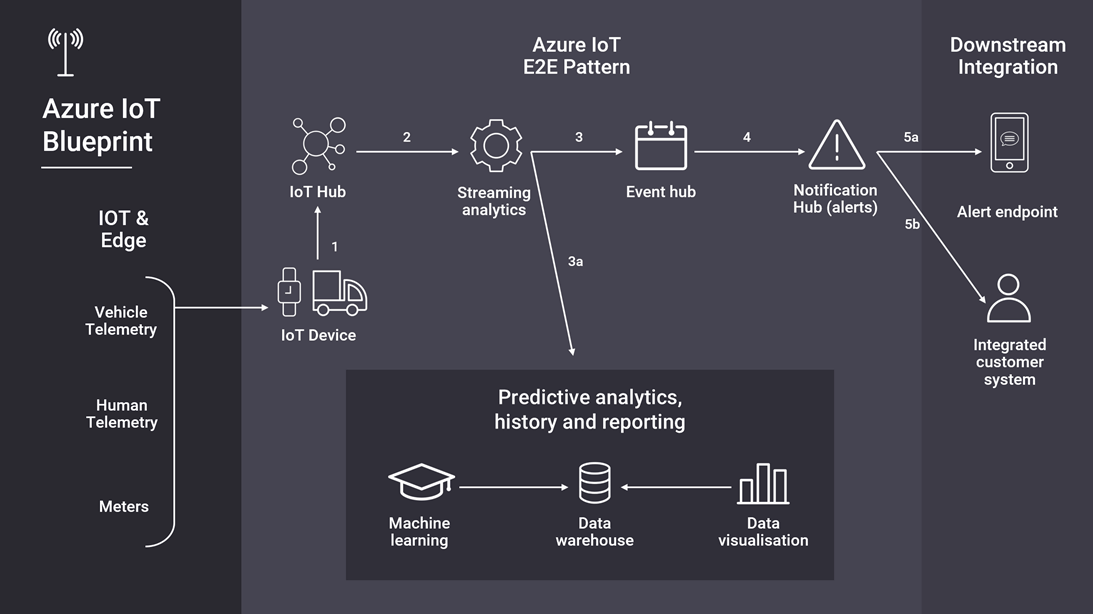- Community Home
- >
- Services
- >
- The Cloud Experience Everywhere
- >
- 10 Microsoft Azure Business Benefits in One Conven...
Categories
Company
Local Language
Forums
Discussions
Forums
- Data Protection and Retention
- Entry Storage Systems
- Legacy
- Midrange and Enterprise Storage
- Storage Networking
- HPE Nimble Storage
Discussions
Discussions
Discussions
Forums
Discussions
Discussion Boards
Discussion Boards
Discussion Boards
Discussion Boards
- BladeSystem Infrastructure and Application Solutions
- Appliance Servers
- Alpha Servers
- BackOffice Products
- Internet Products
- HPE 9000 and HPE e3000 Servers
- Networking
- Netservers
- Secure OS Software for Linux
- Server Management (Insight Manager 7)
- Windows Server 2003
- Operating System - Tru64 Unix
- ProLiant Deployment and Provisioning
- Linux-Based Community / Regional
- Microsoft System Center Integration
Discussion Boards
Discussion Boards
Discussion Boards
Discussion Boards
Discussion Boards
Discussion Boards
Discussion Boards
Discussion Boards
Discussion Boards
Discussion Boards
Discussion Boards
Discussion Boards
Discussion Boards
Discussion Boards
Discussion Boards
Discussion Boards
Discussion Boards
Discussion Boards
Discussion Boards
Community
Resources
Forums
Blogs
- Subscribe to RSS Feed
- Mark as New
- Mark as Read
- Bookmark
- Receive email notifications
- Printer Friendly Page
- Report Inappropriate Content
10 Microsoft Azure Business Benefits in One Convenient List
While Microsoft Azure has made huge strides in its perception as a market leader, organisations often require more justification.
The top tier of management are requiring a thorough summary of the tangible benefits of Azure. Thereafter, once the advantages of Azure can demonstrate a measurable ROI, the business can rapidly scale-up.
In view of such, and our experience on the subject, we have collated 10 business-driven benefits of Azure that apply across all verticals.
Why Focus on the Benefits Microsoft Azure?
The number of organisations adopting a cloud-based model is increasing rapidly: whether that be from a hybrid approach, or going full cloud.
While this article makes no apologies for focusing on Azure benefits, it’s important to note there are a variety of Cloud IaaS [Infrastructure as a Service] providers available for businesses, including Amazon & Google.
However, as noted by our focus, we think that Microsoft Azure really is a class to itself when it comes to practical business solutions.
This perspective is based on more than a pure increase in use - but quantifiable services including analytics, computing, databases, mobile apps, networking & storage.
With these tools in your competitor’s hands, they have the means to outpace and out-muscle you.
So, what are they getting that you’re not?
10 Microsoft Azure Business Benefits in One Convenient List
1. Microsoft Azure is Fast Across the Board
Speed is critical to businesses of all types, and is a key marker of competitive advantage.
In the context of this Azure benefit, speed is prevelant across three key areas:
- Speed of deployment
- Speed of operation
- Speed of scalability
With all three functions in place, on-premises solutions, even leading cloud providers will find it almost impossible match.
2. Increase your Business Agility with Azure
Businesses using Microsoft Azure have faster development cycles that on-premises solutions. This means that when they are developing their applications they can get more responsive feedback and become more iterative.
Which in-turn allows them to explore the outcomes of technologies in a manner that will suit business objectives.
From a financial perspective — these product cycles allow for measured suitability without expensive outlay or setting up complex infrastructure .
As you can see, business agility is more than just 'maintaining standard', it's about growing quicker and failing faster.
3. Azure can Match your Global Reach
At RedPixie, we deal with clients that need to forfill their data capabilities at a global scale. Which, for those who are reliant on private data centres, have great difficulties in achieving.
As such, Azure has the advantage of dynamically adapting in accordance with performance and utilisation requirements. This reduces the need for a team of architects to monitor behaviour, and enables them to focus on core objectives.
Equally, from a user’s perspective, they are always getting a great experience and aren’t dependant on location.
While some may argue that this scale can only be exploited by smaller organisations, this is not the case. Such that BP recently used this function as a driver for their migration.
Want more details? Here’s a map of the various Azure regions:

For those in the UK, you can see that Microsoft is making a substantial effort to enhance their local offering. Read about their latest announcements.
4. Azure's Integrated Development Environment
In addition to the above, Azure has the benefit of having the world’s leading development environment baked straight in - Visual Studio.
This is a real game-changer.
Whereby, the usual learning curb associated with a new platform is dramatically reduced. Which is good on two fronts:
- You avoid a mismatch of skills
- Teams can very quickly deploy and learn on the job
Through this tight integration, Microsoft Azure demonstrates its willigness to adapt to the needs of developers. Who, in general terms, are the main benefiters from a daily perspective.
Azure Development Examples
In viewing of demonstrating the manner in which Azure can support challenging environments, we have a couple of supporting examples.
Firstly, we have an Azure IoT model that brings together the latest components with regards to data science.

In this cause, we have used a commercially available IoT device, and take the collected data through various different components in order to maximise the response and means of analysis.
If you are interested to see this model explained in more detail, here is a step-by-step video.
Secondly, we have also worked to solve a critical business process that is being pushed to its furthest point - Excel.
Whereby we see many organisations that rely on this Microsoft solution for its business driven models and calculations. With the help on Azure we were able to build an engine that utilises scalability to increase capability.
5. Azure has a Fully Integrated Delivery Pipeline
Having already noted the importance of development environment, the next matter is one of a entire end-to-end solution.
As you may have noticed, this article is trying to show that comparing the benefits of Azure to that of AWS or Google is more than a pure storage play. It is about the entire package.
So, if you were to examine this from an architectural perspective, you require a unified delivery pipeline. As for Azure's:
- Source control
- Unit testing
- Integration testing
- Delivery
- Go live tools
In conjunction with this, some may argue that it is advantageous to use specific tools from different providers - whereby most providers great ease of use through APIs and so forth. However, for greater continuity and fear of integration issues, you are better placed when all tools are available under one umbrella.
But here's the kicker:
When future updates are rolled out, Azure has done so in a manner that still benefits the rest of their pipeline, thus ensuring long-term success, and cemeting the business case of a pure-play solution.
6. Disaster Recovery is Solved with Azure
At RedPixie, we often work with organisations that have a global footprint, and they therefore require a solution that matches their need for a global transfer of data.
In tandem with this, the CSOs equally have to maintain a stronghold so that there is a consideration for their disaster recovery capabilities. This includes subjects like fail-over locations and recovery points objectives.
Fortunately, Azure covers this in spades.
They have:
- Regional and global fail-over options
- Hot and cold standby models
- Rolling reboot capabilities
All of which can work straight out of the box. Which, in short, puts them far beyond a typical on-premises option.
While the topic of DR may not always be veiewed as a business critical decision, should a company be seperated from it's data for even a day, there can be enourmous legal consequences.
7. Delight your CFO with Flexible Expenditure
Despite the common mis-conception, cloud computing, specifically Microsoft Azure, may not neccessarily be cheaper than a private cloud. However, this is not an issue.
Whereby, one of the advantages of cloud computing is that you are able to very cost efficiently test new solutions and their impact. Once this is done, you can choose to tactically scale in areas that provide the best business outcomes.
As such, your costings may increase, but the ROI is greater than ever before, whilst reducing the need to pay for inefficient resources.
Equally, should you experience seasonal differences in demand, or choose to change revenue models, you need only adapt your Azure Portal.
Which, in the eyes of a CFO, is essential to long-term success.
8. Become Secure with Microsoft Azure
Amongst the various parts to Azure's security proposition, one of the most impactful is the facilitation of secure and seamless logon for their users. Whether that be business to business, or business to consumer.
With the help of Azure Single Sign-On, users can easily access all of their relevant platforms without the requirements of remembering complex password. In doing so, you can reduce the ability of hacking into select accounts, and enable more gradular controls, such as location and device-specific.
9. Ensure Compliance with the Help of Azure
In the grand scheme of things, organisations don't want to consider whether their data and solutions is meeting either industry specific, or location based policies.
They want to focus on business outcomes.
Microsoft's heritage has enabled them to continually provide a platforms that suites this requirement, and have dealt with all the heavy lifting. Especially in sectors like finance, which with GDPR, and policies around types of data, have built out solutions that enable great scope with maintaining soveringty.
If you wish to read more on the matter: read about Microsoft’s trust centre.
10. Azure can be Deployed Anywhere
Lastly, while certain cloud providers, like AWS, very much push the agenda of a 'cloud-first' future, many consider a hybrid model to be more appropriate.
With this in mind, Microsoft have build out an Azure Stack offering, which brings all of the benefits above to their clients, in addition to patterns and practices, while utilising a range of proven hardware providers for their on-premises requirements.
Going forward, business can easily select where their data shall recide, and should they choose to press ahead with Azure's pure cloud solution, this transition can become very easy.
Should you want to hear more, feel free to join our HPE Azure Stack event // arrow
So, which Azure Business Benefits are Best?
If you can afford to ignore the 10 Microsoft Azure business benefits above, then good for you. Otherwise, here they are.
Top benefits of Azure
- Speed
- Agility
- Global presence
- Integrated development environment
- End-to-end delivery pipeline
- Superior disaster recovery
- Flexible expenditure
- Enterprise security
- Leading Compliance
- Azure Stack
However, if you really want to see the power it can give to your organisation, and the impacts that means, you should really access your Cloud options. A great way to start is with our cloud service providers simple guide.
- Back to Blog
- Newer Article
- Older Article
- Deeko on: The right framework means less guesswork: Why the ...
- MelissaEstesEDU on: Propel your organization into the future with all ...
- Samanath North on: How does Extended Reality (XR) outperform traditio...
- Sarah_Lennox on: Streamline cybersecurity with a best practices fra...
- Jams_C_Servers on: Unlocking the power of edge computing with HPE Gre...
- Sarah_Lennox on: Don’t know how to tackle sustainable IT? Start wit...
- VishBizOps on: Transform your business with cloud migration made ...
- Secure Access IT on: Protect your workloads with a platform agnostic wo...
- LoraAladjem on: A force for good: generative AI is creating new op...
- DrewWestra on: Achieve your digital ambitions with HPE Services: ...


